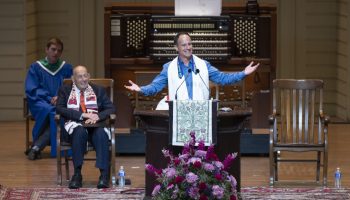MAX ZAMBRANO – STAFF WRITER
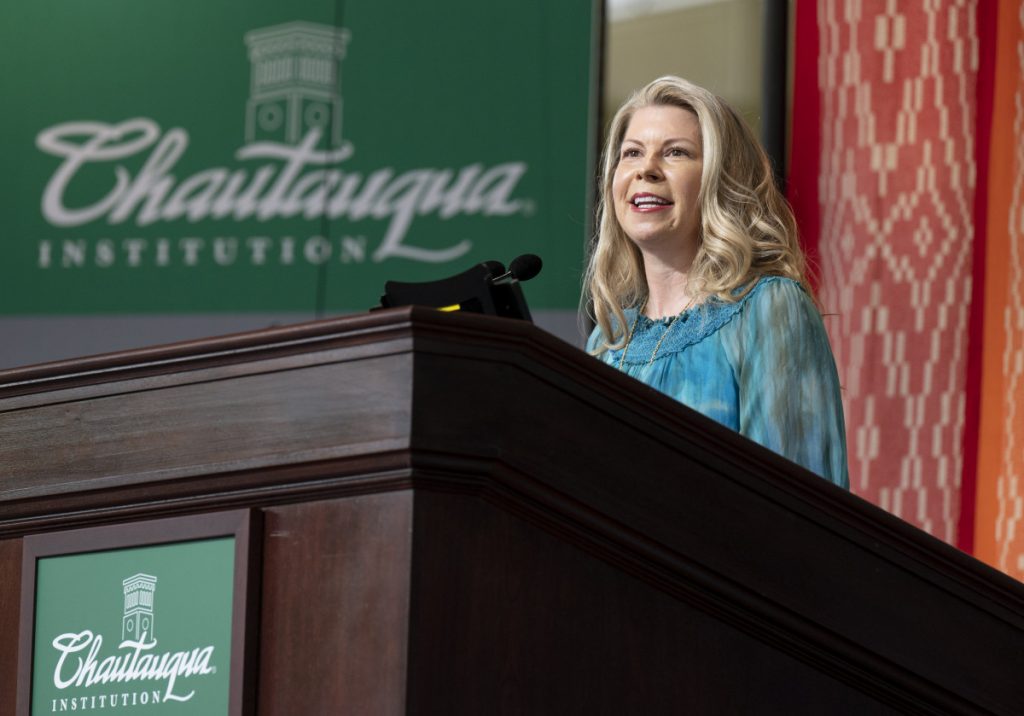
Deep reading and storytelling are more than just for personal enjoyment. They can be the ticket to a flourishing community, said Trinity Forum President Cherie Harder.
“I’m not saying a good book, well read, will resolve long struggles against oppression and mistreatment, change laws, elect leaders, restore victims or even prove a useful tool for activism,” Harder said.
But, Harder said, immersive, empathetic reading, particularly of stories, can develop a person’s character in a way that helps sustain order.
Harder discussed this suggestion at 1 p.m. on Wednesday, July 14 in the Amphitheater in her lecture “Reading for Justice,” the final installment of Week Three’s Interfaith Lecture Series theme of “The Ethical Foundations of a Fully Functioning Society.”
She’s well accustomed to using storytelling as a way to tackle life’s toughest questions.
“(The Trinity Forum) seeks to provide a place for leaders to grapple with the big questions of life, in the context of faith, in order to better come to know the author of the answers, as well as to live and lead widely and well,” Harder said. “One of the chief ways we do this is (to) expose people to the best of literature and letters, and engage them in discussing stories.”
Reading well and living well are linked concepts, Harder said, but it can seem such a simple idea that one takes it for granted. We are seeing this in the United States now, she said, and for the last couple decades.
Among all age groups, reading rates have fallen significantly over the last quarter century, she said. One-half of young adults do not read any literature, and only slightly above one-third of adults read one piece of literature last year.
“This is true despite e-readers, Kindles, apps and all sorts of ways that essentially make it easier than ever to read,” she said.
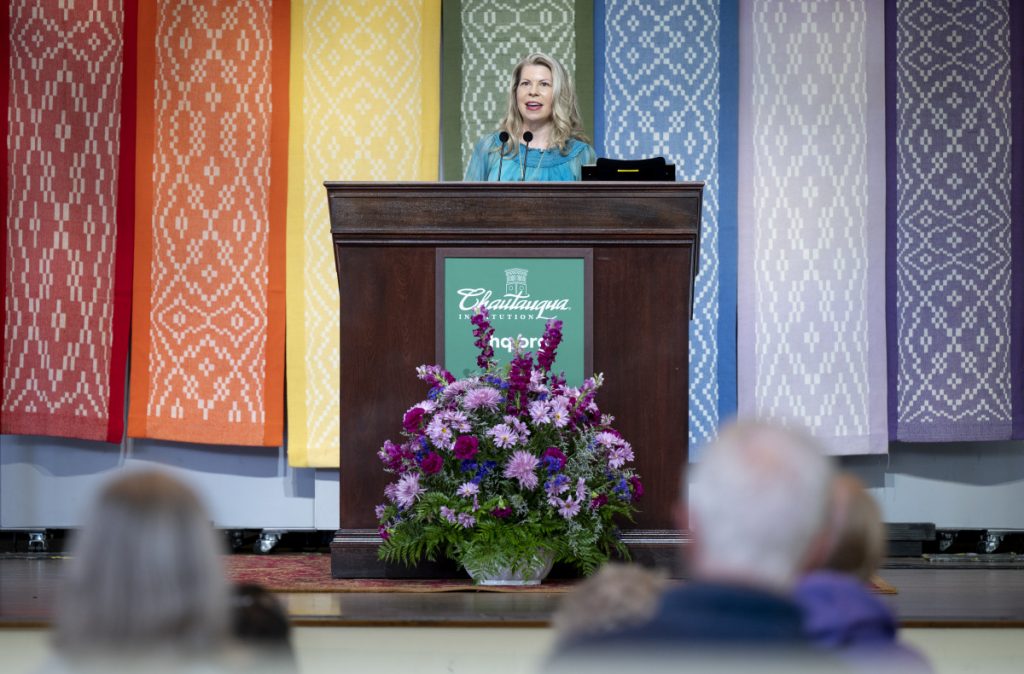
In the academic and nonprofit sectors, too, Harder said storytelling is being deemed unimportant, or practically nonexistent in some cases. Instead, science, technology, engineering and mathematics are being valued as the most, or only, reliable measurement.
“If we put all our value in what can be measured, there tends to be an increasing bias toward that which is more easily measured,” Harder said, noting quantitative data, like data and statistics, is usually viewed as more important than qualitative data, like anecdotal stories.
Young adults may not be reading literature, but they are consuming media — eight hours a day on average, Harder said, often with multiple forms of media on at once. While watching a TV show or movie, people are simultaneously listening to music or a podcast, not to mention texting all the while.
Meanwhile, Harder said young adults spend, on average, nine minutes a day reading. The impacts of electronic media consumption go beyond reading habits, she said.
“Crowded out by an increased reliance on electronic media has not only been reading, but exercising, sleeping and socializing in person,” she said.
Moreover, Harder said social media may preclude certain discussions, thus impacting who one communicates with and how. Quoting the Catholic theorist Marshall McLuhan, Harder noted: “The medium is the message.”
Facebook and Twitter can be useful tools, she acknowledged, such as being ways to keep people in touch during the COVID-19 pandemic and for distributing vaccine information. But, tools can be misused. For one, overuse of social media can foster loneliness.
Nearly half of all U.S. citizens report feeling left out, lonely or alienated, Harder said, also stating that according to Psychology Today, rates of loneliness in the country have doubled in the last 50 years.
Loneliness is toxic, she continued, claiming some studies found it as physically damaging as smoking or obesity, and can lead to diseases like cancer, heart disease, Alzheimer’s, diabetes and more.
Perceptions of loneliness correlates with time spent on social media, Harder said, meaning it is particularly affecting young people.
Harder said this phenomenon has created an epistemic crisis. Epistemology is the study of how humans know things to be true.
Citing an MIT study, Harder said false stories were 70% more likely to be retweeted than true ones, and fake news spread almost five times faster than real news.
“Worst of all, this isn’t just the result of bots,” she said. “This is us doing this.”
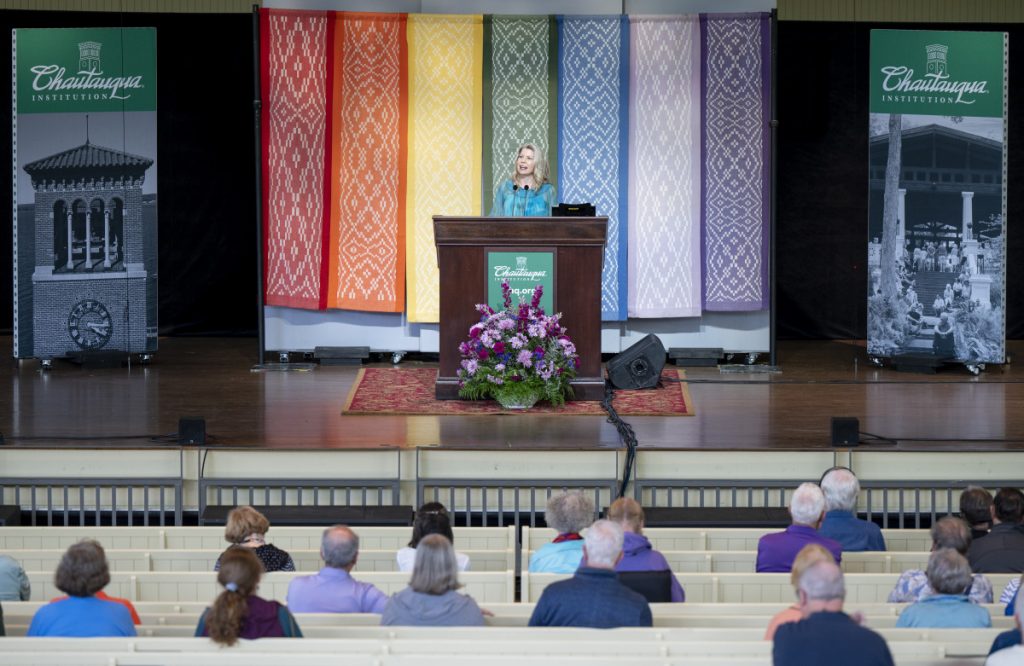
Harder said this challenge of deciphering what is true and false may be one of the more challenging phenomena in U.S. history.
“Social media is tailor-made for (polarization),” she said. “There’s been talk about how much media keeps us angry and fearful, and of course this is a great way to make bank on the currency of social media, which is attention.”
Social media sparks group polarization, she said, causing groups of like-minded people to find and agree on continuously more extreme perspectives. She compared it to elections where primaries tend to be focused on the more extreme ends of one party, but then ideas return to the center during general elections.
Furthermore, social media algorithms, which influence what each individual person sees catered toward what they usually interact with on social platforms, create echo chambers that drive up polarization, Harder said.
“A recent poll found large numbers of people on political extremes — 20% of one party and 15% of the other — thought the country would be better if large numbers of the other side simply died,” Harder said.
Storytelling and deep reading can change how people understand information, however.
“A story engages the whole person in ways that social media, arguments and propositions do not,” she said. “Stories cultivate one’s imagination and reason.”
Stories do this, she said, by forcing the reader to envision characters, dynamics and a world seen through someone else’s eyes.
“It may be one reason why Jesus taught almost entirely in stories or parables,” Harder said. “The gospels themselves are largely the stories of the stories he told.”
Harder said Jesus’ stories often brought women, samaritans and shepherds, or those at the lowest end of the social hierarchy, to the forefront.
In another example, Harder mentioned the character Eustace Clarence Scrubb from C.S. Lewis’ The Chronicles of Narnia: The Voyage of the Dawn Treader. She said it was clear from the outset he was not the story’s hero, because he was described as someone who never read about anything beyond imports, exports and plumbing drains.
In the story, Scrubb finds himself in a dragon’s lair, and because he never read stories about dragons, he did not know what to do in that scenario, Harder said.
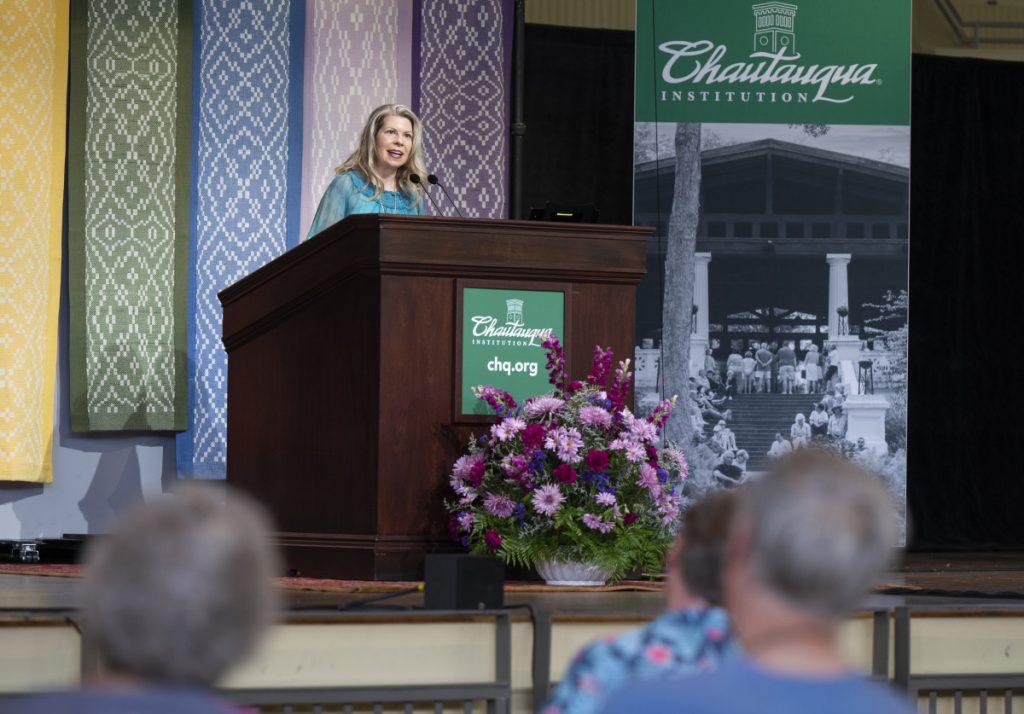
Harder said reading fiction helps people understand why life’s biggest questions require more than quantitative analysis.
“That kind of imaginative thinking helps form a sense of the wisest course of action and what a wise character is, as well,” she said.
Harder said stories teach courage and bravery, such as the Anne of Green Gables, which taught her what resilience could look like for a 12-year-old girl.
Great stories, Harder said, have a journey with an uncertain conclusion, and there are sometimes tragic ones about someone not having the courage to do what they should, or taking a cowardly way out.
“That, in some ways, is why storytelling helps us conquer fear,” she said. “By naming it, we imagine a new way of responses and put ourselves in a position to make responses.”
Stories also teach empathy, Harder said, by entering a new world and trying to understand another person’s emotions. Numerous studies have found avid fiction readers are often more empathetic and respond more wisely to the emotions of others.
“It reveals the vulnerabilities of those we thought powerful, the tender points of hard people, the secret loves of the inscrutable and the character fissures of those we thought probity,” Harder said.
Reading and stories can also help people recognize injustice, such as with Uncle Tom’s Cabin, Harder said.
Beyond simply reading stories, how one reads is also important, she said.
“One of the challenges of social media is that it encourages a certain kind of reading which is very useful for certain reasons and tasks,” she said. “It encourages quick skimming, a rapid, almost strip mining of surface information that one can take, use, instrumentalize and, often on Twitter, weaponize.”
Deep reading, instead, allows the reader to imaginatively enter a world where they must imagine characters, their thoughts and the setting, she said. She contended this is why common ancient metaphors say one enters, eats or breathes the text. Reading does not solely engage the reader, but impacts their morals, Harder said.
“How we choose to read, how we submit to or question or resist the terms set by the writer, are choices that shape the habits of our minds and the habits of our hearts,” she said. “Those habits often determine the degree to which we are open to truth in its various guises.”
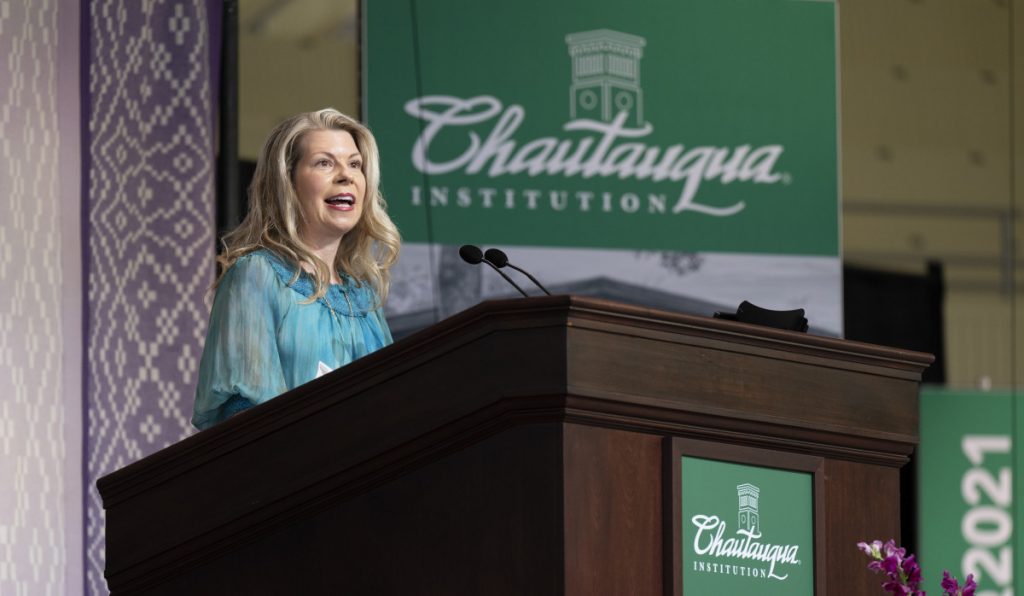
Harder said deep reading requires one to tune out distractions.
“One might ask, ‘What, then, can we do?’ ” she said. “I’m certainly not alone in hearing the siren song of Twitter call me to whatever might be there. My husband will often call me back.”
She listed a few techniques and practices people can use to help them read deeply.
First, she said, is to set aside time for reading and to make it a priority.
Second, reading well requires deliberative thought, so one should slow down and take time to reflect on what they are reading. Additionally, people can reread passages or entire books.
“I’m sure many of you have had the experience of rereading a book a couple decades after you first read it, and being shocked by how much that book seemed to change,” she said, highlighting how life experiences can change how one interacts with a book.
Third, is forming a reading group of three or more people. Reading groups, Harder said, are an opportunity for people to gather, perhaps over a bottle of wine and a cheese plate, to focus their attention on an important text. In addition, getting together in person allows people to face the problem of loneliness she highlighted earlier in her lecture.
Fourth, one can write. Harder said writing is a way of producing culture and helps people appreciate how hard it is to write well.
“Reading well is a precondition for writing well,” she said. “One does not happen without the other.”
The effort of deep reading, especially of stories, can push back against the current cultural climate of increasing polarization, loneliness and confusion, she said.
“So why should we read stories? And why should we read deeply?” Harder asked. “To live more empathetically, imaginatively and bravely. To discern justice and falsehood and to contribute to a community where justice can flourish.”




